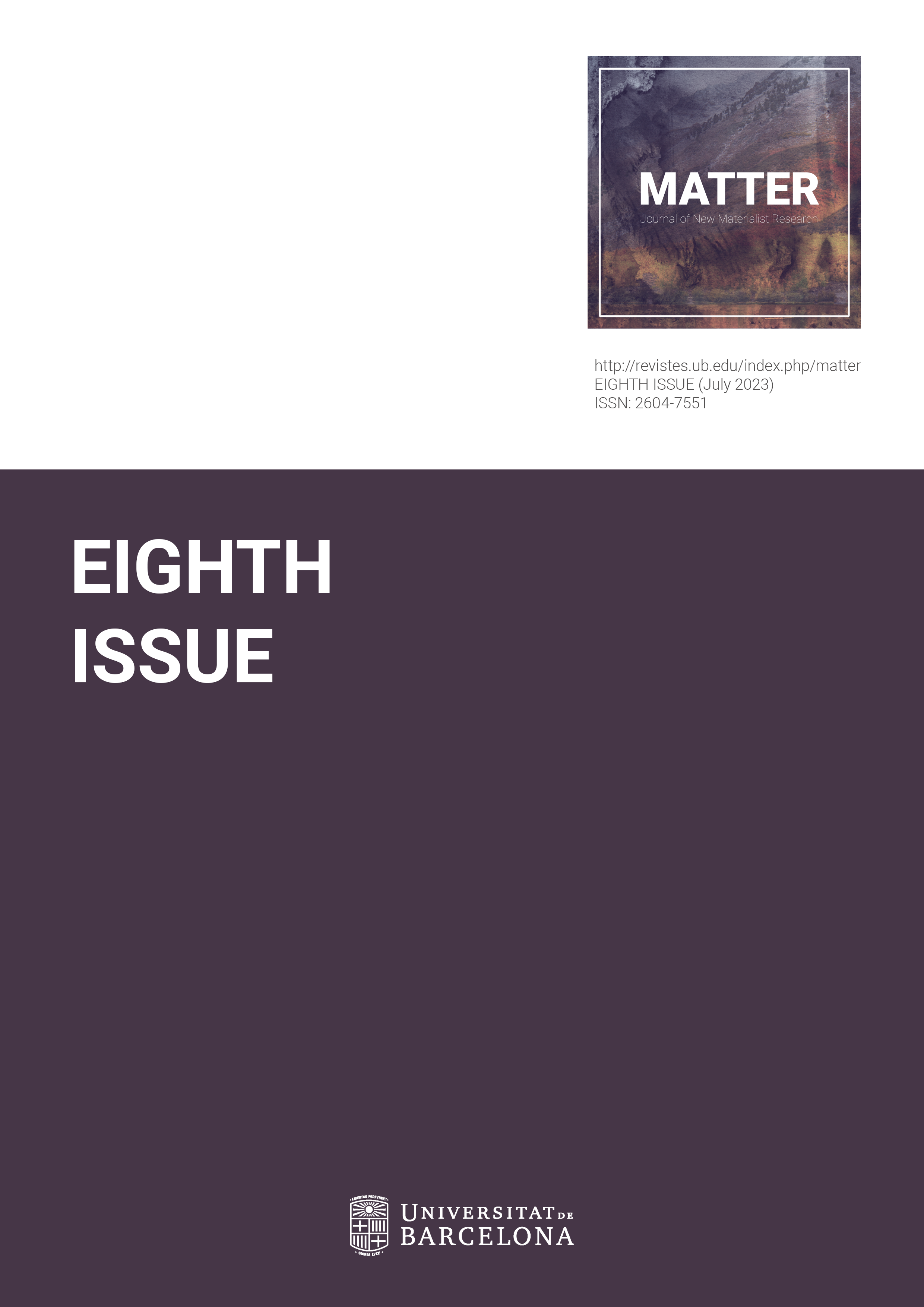Human-animal relationships, silliness, and queer homemaking in Sven Nordqvist’s Pettson and Findus
DOI:
https://doi.org/10.1344/jnmr.v8.43458Abstract
This article argues that the picture book series Pettson and Findus by Sven Nordqvist can be a valuable resource when looking at ethics of matter and thinking through relationships with the more-than-human. Pettson and Findus is a series of picture books written and illustrated by Sven Nordqvist. The books depict the relationship between old man Pettson and his cat Findus, who live in an old farmhouse in the south of Sweden together with chickens, invisible “muckles” and a variety of other creatures and people. The books centre on relatively mundane activities, made into small adventures by the various different creatures. This article analyses the Pettson and Findus series through Donna Haraway’s analysis of human animal relationships in When Species Meet (2008) and calls for the making of oddkin in Staying with the Trouble (2016). This article, using Will McKeithen’s analysis in Queer Ecologies of the Home and Monica Flegel’s Pets and domesticity in Victorian culture, argues that Pettson and Findus live in a queer kind of household, and participate in queer home making. Using Jack Halberstam’s analysis in The Queer Art of Failure (2011) this article centres Pettson as a figure that is both queer and silly, and through this queer silliness creates certain openings for queer community with the more-than-human, and the making of oddkin.
Downloads
References
Adorno, T.W. (1973). Negative Dialectics. (Transl. E.B. Ashton). London: Routledge.
Bennett, J. (2010). Vibrant matter: A political ecology of things. Durham, NC: Duke University Press.
Bennett, J. (2012). Powers of the Hoard: Further Notes on Material Agency. In Jeffrey Jerome Cohen (Ed.), Animal, Vegetable, Mineral: Ethics and Objects (pp. 237–270). Santa Barbara, CA: Punctum Books.
Bennett, J. (2016). The Enchantment of Modern Life: Attachments, Crossings, and Ethics. Princeton, NJ: Princeton University Press.
Deleuze, G., Guattari, F. (1988). A Thousand Plateaus. London: Athlone.
Derrida, J., Mallet, M-L. (2010). The Animal That Therefore I Am. New York: Fordham University Press.
Felski, R. (2008). Uses of literature. Oxford: Blackwell.
Flegel, M. (2015). Pets and domesticity in Victorian culture: Animality, queer relations, and the Victorian family. New York: Routledge.
Forrester, K. (2020). Nature Unnested: Kin and Kind in Switched Egg Children’s Stories. Barnboken: Tidskrift För Barnlitteraturforskning 43, 1–20.
García-González, M., Véliz, S., Matus, C. (2020). Think difference differently? Knowing/becoming/doing with Picturebooks. Pedagogy, Culture & Society 28(4): 543–546.
Goodwin-Andersson, E. M. (2016). “One translation fits all? A comparative analysis of British, American and transatlantic translations of Astrid Lindgren and Sven Nordqvist” (The University of Edinburgh, PhD thesis).
Gossas, C., Axelsson, M., Norberg, U. & Van Meerbergen, S. (2015). En katts resa: Pettson och Findus på norska, tyska, nederlänska, franska och spanska. In Valérie Alfvén, Hugues Engel, Charlotte Lindgren (Eds.), Översättning för en ny generation (pp. 61-71). Falun: Högskolan Dalarna.
Haraway, D. (2010). When species meet. Minneapolis, MI: University of Minnesota Press.
Haraway, D. (2016). Staying with the trouble: Making kin in the Chthulucene. Durham, NC: Duke University Press.
Halberstam, J. (2011). The Queer Art of Failure. Durham, NC: Duke University Press.
Jaques, Z. (2015). Children’s literature and the posthuman: Animal, environment, cyborg. New York, London: Routledge.
McKeithen, W. (2017). Queer ecologies of home: Heteronormativity, speciesism, and the strange intimacies of crazy cat ladies. Gender, place and culture: a journal of feminist geography, 24(1), 122–134.
Moslund, S. P., Boscagli, M., Bøgh Thomsen, T., Caracciolo, M., Graulund, R., Karlsson Marcussen, M., Karlsson Pedersen, M., Karlsson Pedersen, M., Marcussen, M. K., Morton, T., Oulanne, L., Pedersen, M. K., Pultz Moslund, S., Sellberg, K., & Skiveren, T. (2022). How literature comes to matter: post-anthropocentric approaches to fiction. Edinburgh: Edinburgh University Press.
Nikolajeva, M. (2016). Recent trends in children’s literature research: return to the body. International Research in Children’s Literature 9, 132-145.
Nikolajeva, M., Scott, C. (2001). How picturebooks work. New York: Garland Pub.
Nodelman, P. (2019). Fish is people. Bookbird: a Journal of International Children’s Literature. 57(2), 12–21.
Nordqvist, S. (2003). Pettson goes camping. (Transl. Martin Peterson). Stroud, UK: Hawthorn Press.
Nordqvist, S. (2005). A Rumpus in the garden. (Transl. Peter Person). Stroud, UK: Hawthorn Press.
Nordqvist, S. (2007). Pancakes for Findus. (Transl. Julia Marshall and Penelope Todd). Stroud, UK: Hawthorn Press.
Nordqvist, S. (2008) When Findus was little and disappeared. (Transl. Nathan Large). Stroud, UK: Hawthorn Press.
Nordqvist, S. (2017) Findus rules the roost. (Transl. Nathan Large). Stroud, UK: Hawthorn Press.
Palmer, H. (2022). Queer defamiliarisation: writing, mattering, making strange. Edinburgh: Edinburgh University Press.
Weber, M. (1956). The sociology of religion (4. ed.). Methuen.
Downloads
Published
Issue
Section
License
Copyright (c) 2023 Arwen Rosenberg-Meereboer

This work is licensed under a Creative Commons Attribution 4.0 International License.
The authors who publish in this journal agree to the following terms:
- Authors retain all copyright ownership and grant the journal the right of first publication.
- Authors authorize the dissemination of their works in the academic databases where the journal is indexed or may be indexed in the future, even if these are of a commercial nature.






